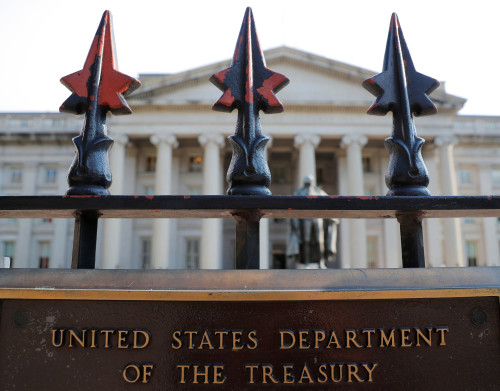
inflation
(Justin Vaughn, Editor, Options Trading Report)
Stocks Post Worst Week In 2 Years…Inflation concerns; Fed rate expectations encourage investors to seek safer havens for assets. All three major U.S indices fell for a third consecutive week, continuing their slide to start 2022, (and defying Santa) with investors worried and concerned about the prospect of higher interest rates and their effect on valuations. The S&P 500 and Nasdaq Composite Index finished up their worst weeks since March 2020: the Nasdaq has fallen for four weeks in a row. The Dow Jones Industrial Average finished its worst weekly performance since October 2020. Many investors have repositioned their portfolios away from riskier assets to start the year. The prospect of higher interest rates has hit the high-flying tech stocks and shares of unprofitable companies, ‘shoving’ the Nasdaq into correction territory. All the while, oil and yields on government bonds have climbed in 2022. Last week, Fed Chair Jerome Powell called rapid inflation a “severe threat” to a full economic recovery. “The Fed is saying ‘OK” zero interest rates don’t make sense here, so we’re going to move back toward something more reasonable,’ ” said Jonathan Golub, chief U.S.equity strategist and head of quantitative research at Credit Swisse. “They’re not really hikes, but signals that a big rate of change is coming,” he adds. Mr. Golub remains optimistic about equity markets, citing a year-end target of 5200 for the S&P 500, about 5.3% higher than Wall Street strategists’ average target. For the week the Nasdaq fell 7.55%, while the S&P 500 dropped 5.7%, and the Dow lost 4.6%. Aoifinn Devitt, chief investment officer at Moneta, said higher yields will normalize the valuations of some tech stocks and make economically sensitive sectors of the market, such as utilities and real estate, more attractive. “By no means are we getting to a yield that is making equity markets look unattractive” said Ms. Devitt.
Bitcoin Tumbles As Stocks Fall… It is becoming a more common occurrence. When stocks fall, so does bitcoin. Bitcoin, the world’s largest cryptocurrency by market value, fell below $37,000 Friday to its lowest dollar value since August 2021, according to Coin-Desk. ($35,207.04, as of Saturday, 1-22-22). It has settled nearly 46% down from its record in November 2021. The major drop occurred at weeks’ end; Thursday and Friday as the market tanked. Cryptocurrencies and stocks have fallen together since the start of the year, responding to investors’ worries about how a series of expected Federal Reserve interest-rate increases will affect the general markets. One measure of how bitcoin has become more ‘entwined’ with markets: The cryptocurrency is near its highest correlation with the stock market since September 2020, according to ‘Kaiko.’ That means when the stock market goes down, so does bitcoin. The widespread adoption of cryptocurrencies among investors may have made them more sensitive to selloffs in stocks. Some analysts suggest that sell-off among popular tech stocks could prompt investors to liquidate positions in their crypto holdings to limit overall losses, (and meet margin calls) and cover possible losses on trades made with borrowed money. “We’ve seen exactly that happen before. Bitcoin being such an excellent store of liquidity makes it so that it is drawn on in times of margin calls,” said Chris Bendiksen, head of research at London-based asset-management firm CoinShares. So goes stocks, so goes Bitcoin…for now.
Oil Prices Surge To 7-Year High… Intermediate crude closed at $84.83 a barrel on Friday, the highest level since 2014 when oil prices were moving in opposite directions as a ‘gusher’ of U.S. crude flooded the market. It took the oil market several years to recover from the price decline set in motion by the U.S.’s re-emergence as an oil-producing superpower. The rebound from the coronavirus crash of 2020-when U.S. crude futures turned ‘negative’ as the world struggled to find places to store oil, has been much faster. Among the factors driving the rally are the concerns that tensions in the Middle East and Europe will boil over causing production fall-offs and supply shortages amongst producers the likes of Russia and the United Arab Emirates. In a report issued by OPEC, they forecast that the world would consume 100.8 million barrels of oil a day this year, up 4.2 million barrels a day from 2021. The rise has been driven by increasing demand for light distillates used in the petrochemical industry. Gasoline prices are also rising, adding to inflationary pressures and complicating matters for President Biden, who released crude from the strategic reserves in the fall in an attempt to help drivers facing sticker shock. It has not worked, the average national price stands at $3.387, up from $2.386 a year ago. Even electric vehicles haven’t dented the demand for oil…yet.
RUMBLINGS ON THE STREET
Jack Janasaiewicz, a portfolio manager and lead portfolio strategist at Natixis Investment Manager Solutions, WSJ “We’re experiencing a withdrawal of liquidity and that’s really spooking the market.”
Janet Yellen, Treasury Secretary, Barron’s “If we’re successful in controlling the pandemic, I expect inflation to diminish.”
Todd Ahlsten, CIO and lead portfolio manager, Parnassus Core Equity Fund, Barron’s “This is a great time not to overlook innovation, because you will miss it and buy it too late.”
Abby J. Cohen, Professor of Business, Columbia University, Barron’s “Unlike in recent years past, we will see that diversification, stock selection, and risk control matter.”
Meryl Witmer, General Partner, Eagle Capital Partners, Barron’s “If the music stops and crypto tanks, there could be a contagion into the stock market. It could set up a good buying opportunity.”
Harry Ellenbogen, CIO and managing partner Durable Capital Partners, Barron’s “Investors are having a tough time sorting out which are the real growth companies because of the huge supply of new growth companies.”
THE NUMBERS, Barron’s
8.8 Million Number of adults who say they can’t work because they were sick or caring for someone in early January; highest on record.
176 Number of 3.0 earthquakes last year in the Texas portion of the shale-oil-rich Permian Basin, up from 51 in 2020, nine in 2019.
$1.65 Trillion Global foreign investment in 2021, a 77% increase from 2020 and above 2019.
$150 Billion Estimated ocean-freight pretax profits in 2021, up nine times in a year.






